“Queens Community Board 13 expresses no knee-jerk aversion to new housing. We object to City of Yes imposing as-of-right zoning to insert new housing whether or not local neighborhoods have the infrastructure in place first to support it.”
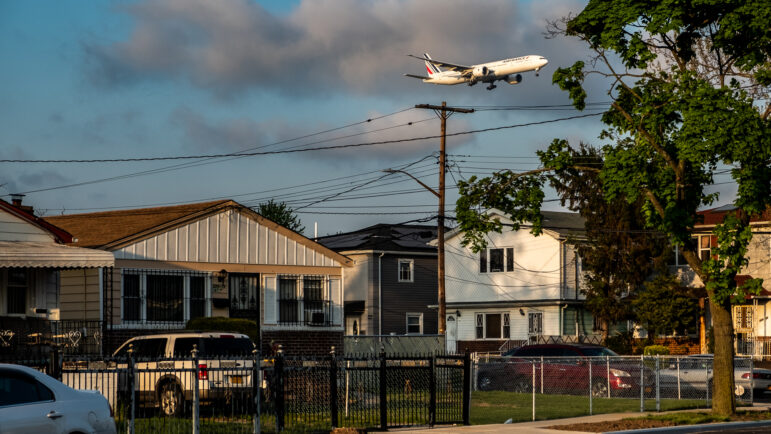
Adi Talwar
Homes in Southeast Queens near John F. Kennedy International Airport.Queens Community Board 13 agrees with its Queens Borough President Donovan Richard on one major point with respect to City of Yes for Housing Opportunity: the need for thoughtful collaborations and robust commitments from the city and the state when it comes to the creation of new housing.
This explains Queens Community Board 13’s unconditional rejection of City of Yes for its evisceration of the City Charter’s community review provisions. While its ULURP (Uniform Land Use Review Procedure) remains, the increased densities that City of Yes would allow—“as-of right”—throughout the city REMOVES development greater than currently permitted from community review, in just about every neighborhood.
Community review remains important and paramount; it offers an opportunity for the community, community boards, borough presidents, borough boards, the Department of City Planning and—especially and critically at this juncture, as City of Yes goes before them—our elected members of the City Council.
Queens Community Board 13 held public meetings and discussions concerning the proposed City of Yes for Housing Opportunity citywide zoning text amendment, including before its Land Use Committee on June 10, 2024. The board adopted a resolution unanimously (41-0) on June 24, 2024 that recommends rejection of the provisions of City of Yes for Housing in its entirety.
Why? As we testified to City Planning, each of the provisions of City of Yes for Housing Opportunity would remove traditional New York City Charter-mandated community board, borough president and City Council reviews of uses not permitted under existing zoning and land use provisions. The “as-of-right” features of each of the provisions of City of Yes for Housing Opportunity would weaken the existing City Charter-mandated “community review” provisions.
The greater density allowed “as-of-right”—meaning without New York City Charter-mandated “community review”—under City of Yes in each New York City neighborhood means increased population occurs before the necessary infrastructure gets built. This risks overcrowded classrooms, the threat of sewer backups, especially in communities with combined sanitary and storm sewers, increased traffic, and insufficient parking. The new development allowed under City of Yes also offers no guarantees of housing affordability.
“Community review” protects neighborhoods from the above and other adverse and unplanned impacts before any new development can occur. We believe that organic community-led development that ensures any necessary infrastructure upgrades—and, perhaps more importantly as a matter of public policy, housing affordability—is what we should strive for.
Like our borough president, Queens Community Board 13 expresses no knee-jerk aversion to new housing. We object to City of Yes imposing as-of-right zoning to insert new housing whether or not local neighborhoods have the infrastructure in place first to support it.
The City of Yes zoning changes would permit greater scales of development—increased density—on blocks and in neighborhoods without community input, without any guarantee of affordability, especially for working families and the middle class.
Retaining City Charter-mandated community review for this type of growth empowers communities, community boards and their elected borough presidents, and especially the City Council, to maintain and/or inject community affordability as part of any new zoning or project. As a result, all City of Yes guarantees are opportunities for private developers to rake in cash without any oversight on how the project serves the public good.
We argue against creating any new zoning rules, whether it would permit basement apartments or ADUs or multi-story buildings on corner lots, which are among the many as-of-right development provisions of City of Yes. Instead, we recommend reforming City of Yes to allow opportunities to grow new housing in low density neighborhoods where a community identifies appropriate locations (and would similarly apply to more dense neighborhoods where City of Yes would inflict even greater density).
This requires changing City of Yes from amending existing residential and commercial zones to creating new zoning designations that communities/community boards/elected officials can implement if/when/where THEY think make sense—of course abiding by the City Charter’s community review provisions know as ULURP (Uniform Land Use Review Procedure).
As Corey Bearak pointed out to Borough President Richards during a recent impromptu City of Yes discussion, many examples exist in the city’s Long Island suburbs of community-government-private (and nonprofit) development collaborations that have introduced new housing, including affordable and senior housing and transit oriented development. Vision Long Island highlights and recognizes many of the best of these projects at its annual Smart Growth Summit each December and Smart Growth Awards each June.
Community Board 13 finds that any land use, zoning and or planning provisions that weaken rather than strengthen existing community review provisions found in the New York City Charter, including those found in City of Yes for Housing Opportunity, merit strong disapproval. Note that only three of the city’s 59 community boards found City of Yes “Favorable;” 16 conditioned their approval; and a majority, 34, oppose it (28 outright, and six unfavorable with conditions).
At the Queens borough president’s public hearing, the vast majority of Queens’ constituents opposed City of Yes. Many of their concerns seemed to resonate with Borough President Donovan; his public statement mentioned “conditional support” and shared “significant concerns.”
The best ways to address possible future needs require New York City to provide tools and resources to each of its community boards to identify parcels in any given community that might be appropriate, and make sense, for beneficial local development and, thereby, foster collaborations with government, community and the private and non-profit sectors to realize such beneficial results.
This approach would empower communities to collaborate with their elected officials, relevant city agencies and private and/or non-profit developers to realize development to address both local and citywide needs. It also allows communities to consider and include affordability of new housing in any new development.
Let’s re-jigger City of Yes into a menu of tools to be tapped to create smart growth where it makes sense rather than measures that impose unwanted, sometimes unnecessary and inappropriate infusions of density on blocks with no guarantee of housing affordability, in our neighborhoods and throughout our city. The City Council now has the opportunity to make this happen.
Corey B. Bearak, Esq. chairs the Queens Community Board 13 Land Use Subcommittee on City of Yes. Michael Mallia, AIA, chairs the Queens Community Board 13 Land Use Committee. Bryan Block chairs Queens Community Board 13.


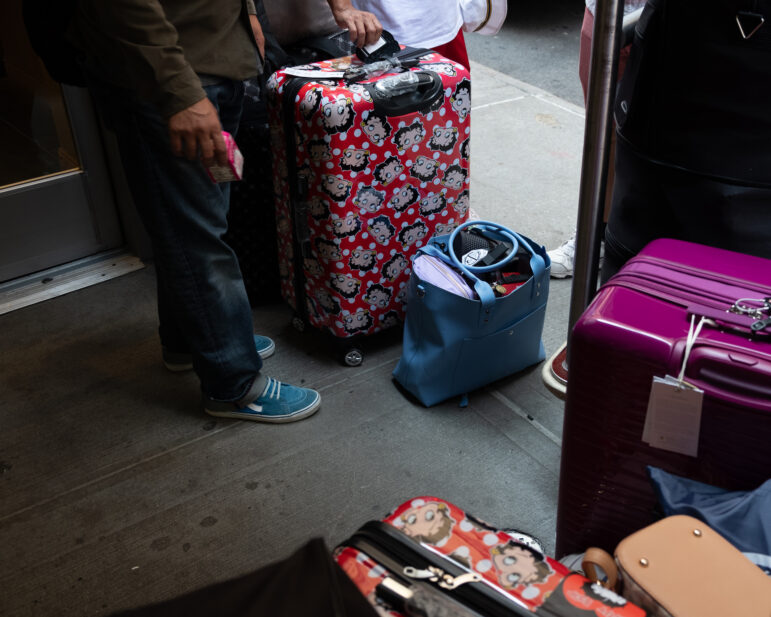
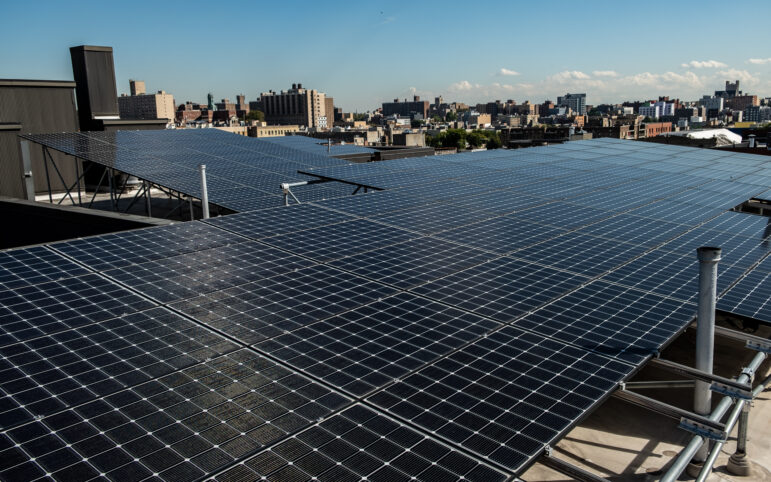

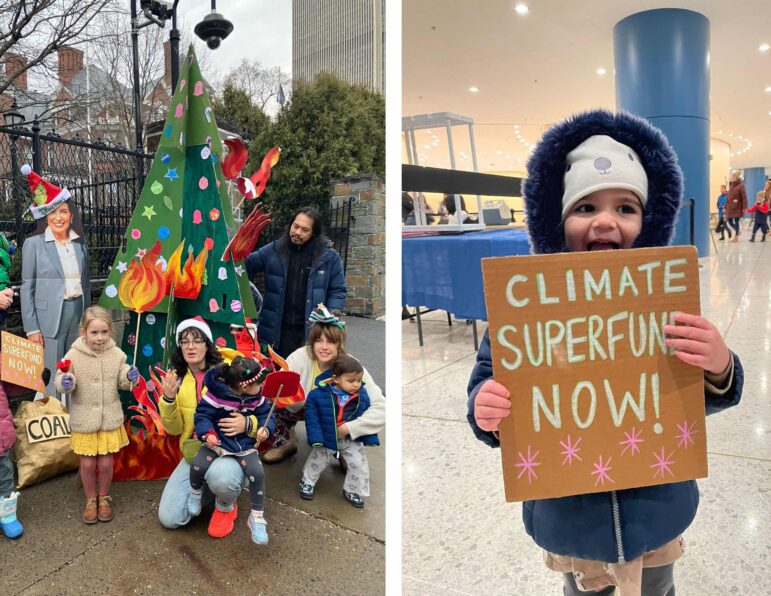
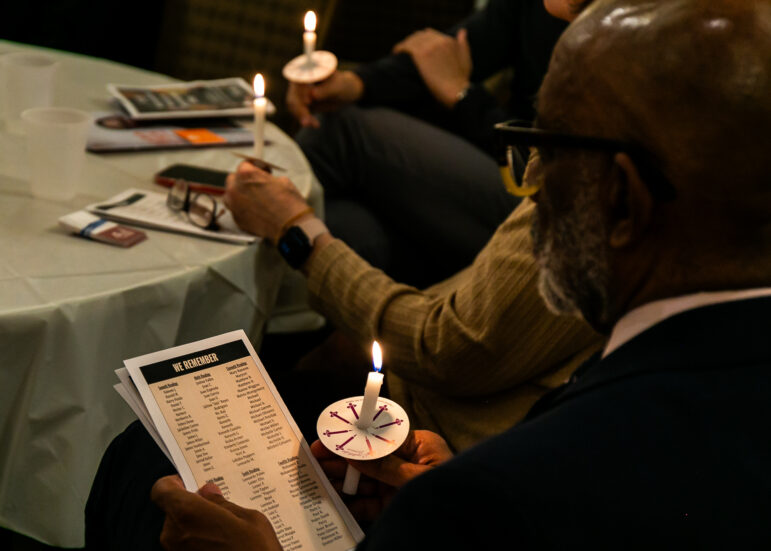


4 thoughts on “Opinion: NYC Needs Smart Growth & Affordability, Not Unchecked Hikes in Density”
Total opposition in Queens to City of Yes! – http://u.pc.cd/gyDrtalK
Bipartisan opposition in Queens to City of Yes! – http://u.pc.cd/Sut
Forcing out NYC homeowners id the real goal of City of Yes – http://u.pc.cd/Y2e
Community boards are one of the primary causes of our housing crisis. Many boards are upset they will loose the ability to reject certain development under the proposed regulation.
This community board is one of the bottom districts when it comes to affordable housing creation. Almost all of Queens Community Board 13 is less than R3, which the proposed zoning would allow for an apartment building a whopping 3 floors on certain sites!
The rezoning process itself is expensive and time consuming. It makes absolutely no sense to go through a year long or more review to build a small apartment building. Many of which already exist in these areas but are currently banned due to zoning changes made after WW2.
The City of Yes for Housing Opportunity is very modest and the point is little more housing in a lot more areas without having to go through a land review progress for modest development. They are upset about the potential of loosing parking spaces and seeing additional people. Eliminating parking minimums does not mean eliminating parking, it means developers would build according to demand. In areas like Eastern Queens, parking will continue to be included. However on certain lots parking minimums make affordable housing infeasible or reduces the number of units. Not every house will have an accessory dwelling unit.
This is housing crisis and we don’t have years to wait for every proposed three story apartment building in eastern Queens.
‘The City of Yes for Housing Opportunity is very modest and the point is little more housing in a lot more areas without having to go through a land review progress for modest development.’
No, it’s a lot more housing within a half-mile of all subway lines, that’s a huge amount of land being upzoned with a lot MORE housing to overwhelm our nice outer borough neighborhoods.
In Queens Community Board 13, the proposed transit zone (immediately around LIRR stations) accounts for less than 10% of the land area.
In order for the transit zone zoning change to be applicable the site must be 5,000 sq ft and on the short end of a block or wide street.
The overwhelming vast majority of the area is R3 or lower, with a few tiny R4 sites. That’s 3 floors max on the potential R3 sites and 4 floors max on few potential the R4 sites.
For the limited commercial overlays within that limited transit zone, buildings would be allowed a maximum of 5 floors (town center zoning).
Preventing as-of-right construction for buildings that would cause such minimal impact is detrimental to the city as a whole. Not every potential site will be redeveloped, most won’t. And the process will take years to build out those potential sites. Modest but more than the paltry amount of construction that occurs in areas like this currently. It does add many additional units to the city’s total inventory overall.